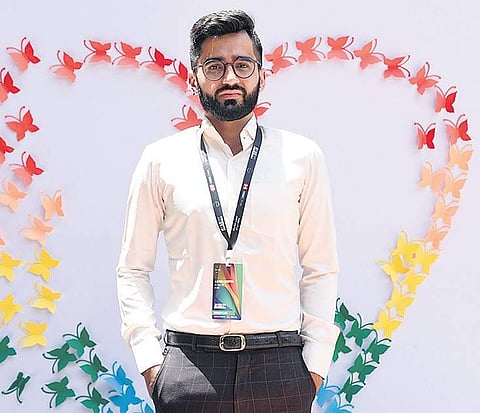

BENGALURU: Rejected after more than 75 interviews, Sukanya is now looking forward to a new future as a web developer. “They were times when the security guard showed me the way out before I could even attend the interview. On other occasions, I was blatantly rejected because of my gender,” recalls Sukanya, who is looking forward to starting a job after a freelancing stint. She was one of the 300 candidates present at The Lalit Ashok, where workplace inclusion consultancy Pride Circle organised the country’s first-ever LGBT+ job fair, RISE (Reimagining Inclusion for Social Equity).
As many as 45 companies were present at the fair to hire candidates across roles such as human resources, finance and technology. For Heidi Saadiya, who has just completed her masters in journalism, the fair served as a professional entry point. “This would be my first interview. It’s great that I can explore myself at this fair and reflect upon my identity,” said Saadiya. The job aspirant had come from Thiruvananthapuram to attend the fair and was hoping to land a job at Accenture or SWYM for public relations and advertising roles.
Like Saadiya, others too had come from other cities in hopes of finding a job. After being rejected from three jobs at Kolkata, Sandeepta Das decided to head to Bengaluru for a better outcome from the fair. “Some employers told me they only hire ‘biological’ women.Such reactions broke me,” said Das, who is now looking for a job as an artist.
Keshav Suri, executive director, The Lalit Suri Hospitality Group, who was also present at the event, said in order to include the community in the mainstream, it is important to embrace and empower them, and putting up rainbow flags wouldn’t be enough. “We also need to talk about skilling and hiring candidates from the community,” said Suri.
While some of the participants looked for entry-level jobs, others like Seshadri Srinivasa sought more senior management roles at MasterCard and Societe Generale. Ashish Chopra, who has two years work experience, was keen on finding a company which is diverse all year round and “not just during Pride Month”. While accepting that things have changed for the better in the corporate sphere, Chopra did recall instances where he would get an upper hand at work due to his openness about his identity. “I wish I was just treated normally or like anyone else,” he said.
Agreed Parmesh Shahani, head, Godrej India Culture Lab, who said that members from the community make up four to eight per cent of the population. “There are LGBT scientists, doctors, engineers, chartered accountants and farmers. We’re here, we’re everywhere,” he said, adding that there is a need to create a country where companies welcome the talent every individual has. “We need to create systems and policies where people can thrive and come out in the open. I hope we don’t have to wait for a job fair every year and open our hearts, minds and corporate doors to the LGBT employees and recognise how brilliant they can be,” he added.
On inclusivity in india and rediscovering our culture
Author Devdutt Pattanaik, who was a speaker at the event, said India has always been inclusive, with Sanskrit grammar texts referring to male, female and queer. “It’s funny that the West has to come and teach us about diversity. We’ve forgotten that we’ve always made space for everyone,” he told CE. He added that besides just talking about inclusion, we also need to create that space. Citing the example of Olympic athlete Dutee Chand, he said, “She has been praised for the medals she wins, which is great. But no one is acknowledging the part of her saying she found love in a lady, and whose love helped her fight better. Top cricketers are celebrated with their wives and children but Chand does not get that benefit,” he said, adding, “It’s time we rediscover our Indian culture.”